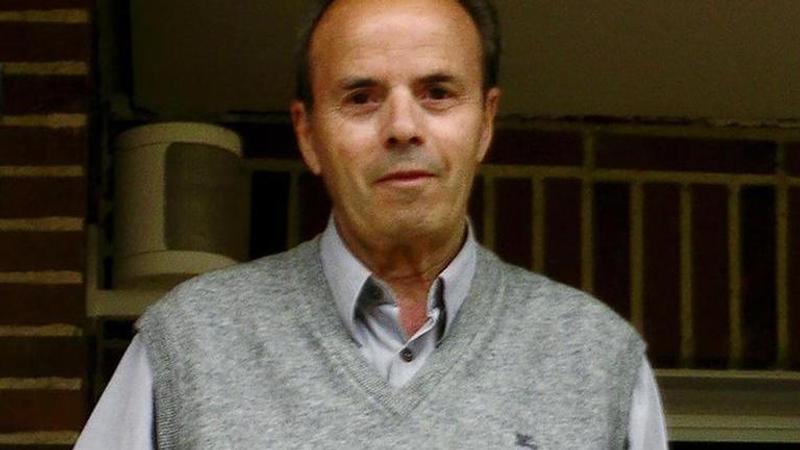Published 12:34 IST, April 16th 2020
Lives Lost: Spanish father leaves behind bits of history
Julián Iglesias could always connect with his loved ones through his gaze, even after dementia stole his memory.

Julián Iglesias could always connect with his loved ones through his gaze, even after dementia stole his memory.
“Maybe he didn’t recognize me, but there was always something in his eyes,” daughter Victoria Iglesias said.
The man who tucked newspaper clippings into his books, who earned two degrees following Spain's tough transition to a democracy, who loved walking in nature and collecting gadgets, died in a Madrid hospital March 26 of the coronavirus.
Like thousands of other Spaniards who fell ill, the 89-year-old was alone when he died. That's especially hard for Victoria Iglesias, who said she, her sister and mother regularly visited her father in his nursing home on the outskirts of Madrid and would have been at his side in his final hours if not for Spain's mandatory lockdown.
“The pain is very deep,” she told The Associated Press in a video call days after his death.
The family has been separated since the pandemic plunged Spain, one of the hardest hit countries, into a lockdown last month.
Victoria Iglesias' mother does not even know she is a widow yet. Her daughters agreed they would only tell her once they could hug her.
Though her father had dementia, the inability to say goodbye is just as devastating. “Did he think we abandoned him?” she wondered.
Born in Salamanca in 1931 to a humble family of eight children, Julián Iglesias survived the hardships of the 1936-39 civil war and the country’s transition to a democracy. A dedicated student, he earned a degree in business and later one in teaching — no easy feat for his time — and moved north to Basque country with his wife.
They had two daughters, and he had a successful career as a head accountant in what was then Spain’s largest company, Altos Hornos de Vizcaya.
In his free time, Iglesias enjoyed long walks in Basque country's lush, green hills. The stillness of nature and the sound of birds helped him think.
Iglesias also left notes, newspaper cutouts and stamps between the pages of the books he read. To this day, Victoria Iglesias uncovers little memories of her father. Most recently, she found loose pages from an old calendar, a union membership card and a newspaper clipping about the death of a train station worker crushed between two train cars tucked into his favorite book, the Spanish novella “The Life of Lazarillo de Tormes and of His Fortunes and Adversities."
When his daughters had problems at work or in their personal lives, they would visit their father at the nursing home in the town of Colmenar Viejo and spend hours in his room, brushing his hair or caressing his hand.
“He was the one helping me,” Victoria Iglesias said, holding back tears.
A few days after the nursing home locked down in mid-March, Julián Iglesias got a fever. He was taken to a hospital on March 15, and his health deteriorated. It sometimes took days to get through to the overwhelmed hospital, and when his daughters managed to reach medical staff for the last time 11 days later, it was too late.
The day he died, Victoria Iglesias, her son and partner held an improvised memorial ceremony in their living room. They dressed up, lit a candle and went back through their fondest memories: family holidays to the beach or when he played “Mambo No. 5." They also remembered his beloved gadgets: an Olivetti typewriter, the family’s first photo camera and a pair of binoculars.
“Do you know how important it was for me to have my father there, even if he wasn’t there mentally? Do you know how much he helped me?” Victoria Iglesias said. “People don’t realize how important the elders are.”
Updated 12:34 IST, April 16th 2020




